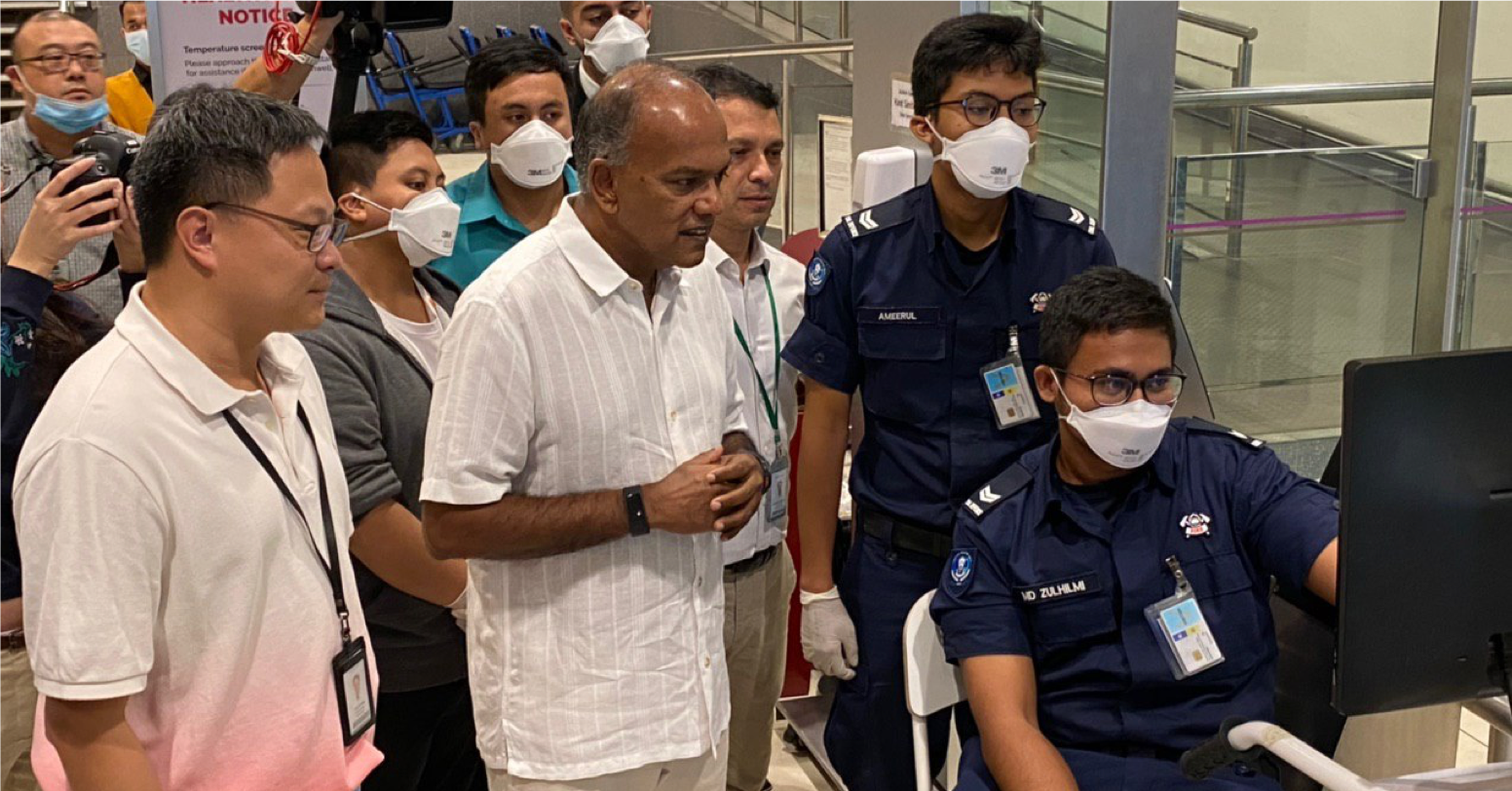The Wuhan virus situation has brought out both the best and the worst of Singaporeans, said Minister for Home Affairs and Law K Shanmugam on Feb. 2, 2020.
Speaking to reporters at Jewel Changi Airport, Shanmugam took a Dickensian view as he said some people might call this the "best of times, worst of times."
Singaporean generosity of spirit
He praised the reaction of Singaporeans who came together and pitched in to help fight the spread of the virus, mentioning Singapore Armed Forces personnel packing crates of surgical masks for distribution, Home Team officers putting in extra shifts, and grassroots volunteers manning counters to hand out the masks.
He also commended the public for their "spontaneous acts of generosity", with some bringing refreshments for the volunteers, and those who gave away their masks to others who needed them more.
Shanmugam said: "And the residents who gave away the masks that they've collected to others whom they think might need it more. That's happened in my GRC, I'm sure that's not isolated, there are others too."
He added: "So the Singaporean spirit, the generosity of spirit has been quite amazing to see."
"Disturbing trends", but in the minority
But at the same time, Shanmugam said he had noticed "disturbing trends" in "small pockets".
He called out the spread of falsehoods and also anti-People's Republic of China (PRC) sentiment, both online and out in public.
Shanmugam added: "Really, you know, we are bigger than this and our hearts are bigger than this. Really, we shouldn't come down to this level of xenophobia."
He warned against any racial animosity arising from the Wuhan virus situation, but added that overwhelmingly, Singapore society has shown itself to be "calm and confident" in dealing with matters.
PRC Embassy post
One reporter asked Shanmugam about a Facebook post made by the PRC Embassy in Singapore earlier that same day, which criticised countries for imposing travel restrictions despite the World Health Organization (WHO) not recommending such a move.
It also singled a "certain country" that had announced a "blanket travel ban", although it did not name names.
Singapore's conditions are unique
Shanmugam first stated that the government had confidence that China could deal "decisively" with the virus.
He mentioned that from Singapore's perspective, it had introduced the travel restrictions in stages, based on medical evidence.
Shanmugam also pointed out that different countries had imposed differing travel restrictions on China due to differences in size and resources.
He made the point that as a small, densely-populated country, it would be easier for the virus to spread in Singapore than in other countries.
"I'm sure the Chinese government doesn't want it, we don't want it, our primary duty is to make sure Singaporeans are safe, and our quarantine facilities are limited. Our medical facilities can be easily stretched," Shanmugam said.
"That's why I say, you know, the situation Singapore is in is very different from say other countries which are larger... We have to look at our situation, our size, our resources and based on that, and based on the science, make the decision."
Not all PRC passport holders are barred
When asked about the rationale behind barring Chinese nationals from entry, including those who may not have been to China beyond the past 14 days, Shanmugam said that was "not accurate".
He pointed out that of the 15 people who have been denied entry to Singapore as of 1pm yesterday (Feb 02) because of their travel history, only one-third were Chinese nationals.
ICA noted that the others turned away comprised of five Indian passport holders, two Americans, one Malaysian, one Briton, and one Spaniard.
While Singapore's status as a visa-free transit facility for Chinese nationals has indeed been suspended, there are certain exceptions.
For instance, Permanent Residents and Long-Term Pass holders may still enter Singapore, although they are subjected to a 14-day leave of absence.
Other Chinese nationals may also make appeals if they have not recently been to China, and these will be looked at on a case-by-case basis.
Related stories
Top image by Sulaiman Daud
If you like what you read, follow us on Facebook, Instagram, Twitter and Telegram to get the latest updates.
